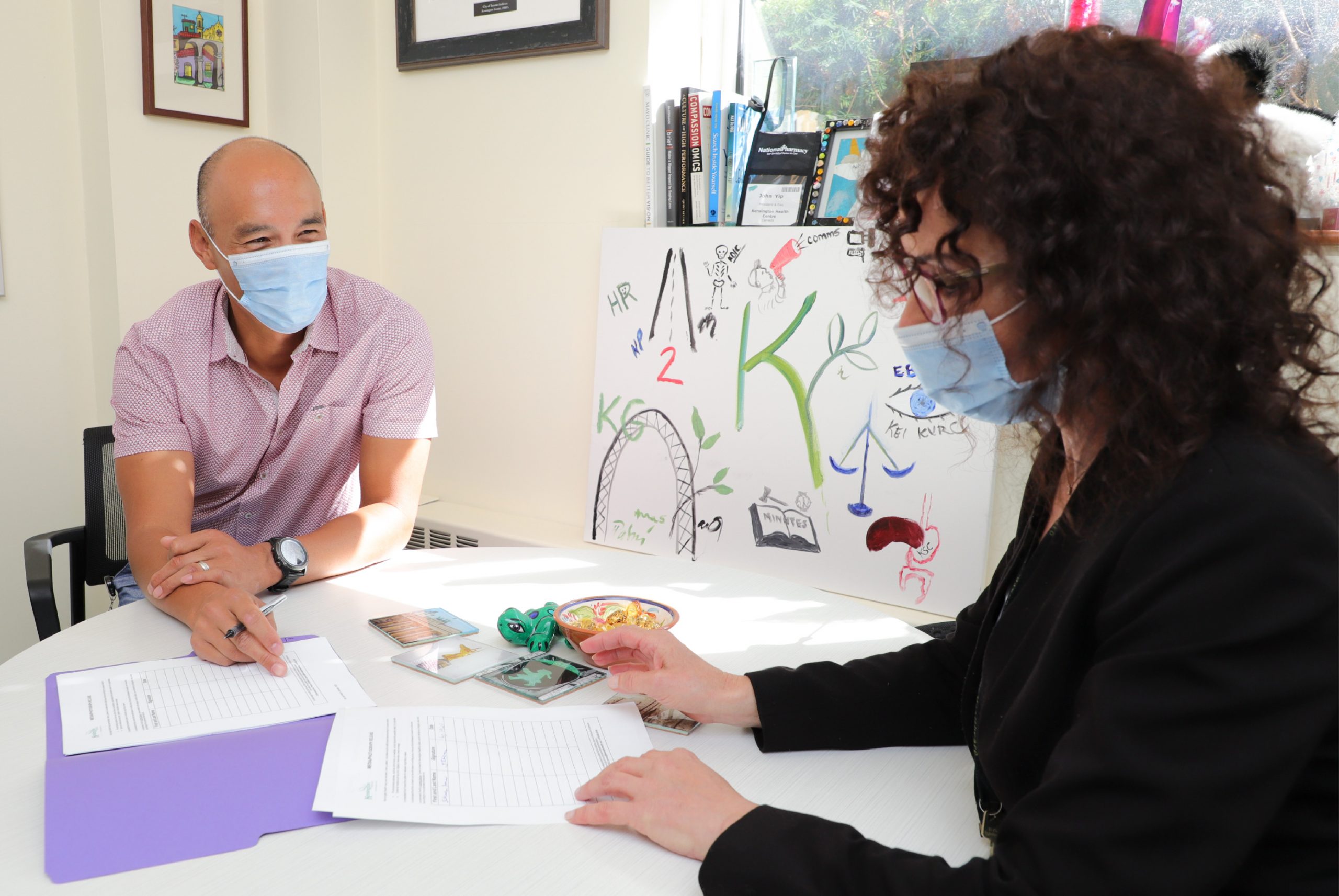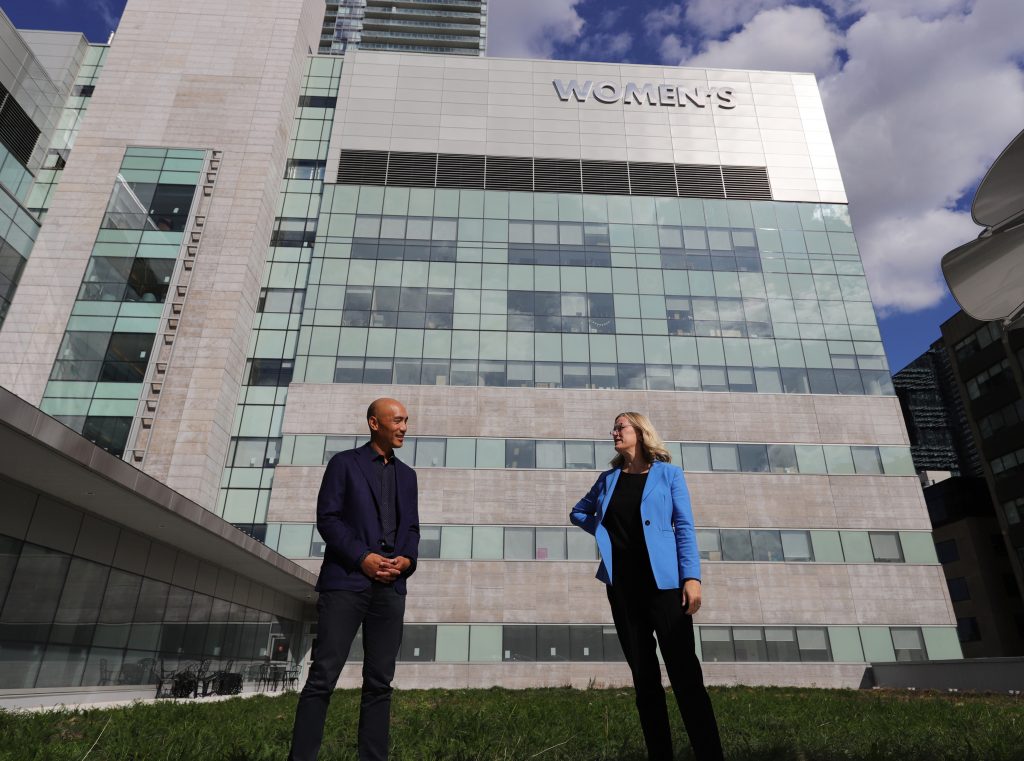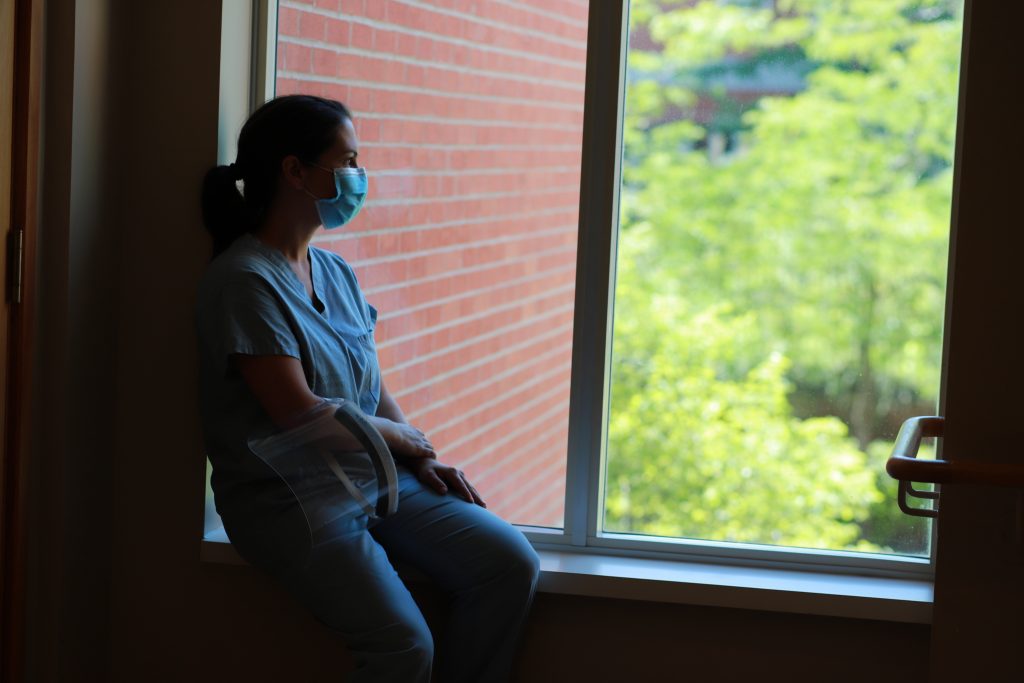

Stepping up to support long-term care residents at the height of the pandemic
At 8:00 a.m. on the Saturday of the Easter long weekend, John Yip was tense as he picked up the phone to call Women’s College Hospital (WCH).
Yip, the president and chief executive officer of Kensington Health, had been tracking the COVID-19 pandemic since the first warnings had emerged from China in February. By April, the virus had reached his residents of Kensington Gardens, the long-term care facility he oversees in downtown Toronto.
“This was a new virus, there wasn’t a lot known at the time,” said Yip, describing the first weeks of the pandemic’s arrival in Ontario. “Shortly after the government declared a restriction on visitors for long-term care facilities – the next day – we got our first positive infection.”
Even with their advanced planning and precautions, Yip knew he was going to need additional support for his residents. “Despite the screening stations, despite universal masking, it just takes one mis-step. I knew an outbreak was bound to happen regardless of our precautions. We were playing roulette.”
Not knowing where else to turn, he picked up the phone and dialed a number he had received at a meeting months prior. “During the height of the pandemic, I called Women’s College Hospital and said, ‘Look, we’re going to need help. We already need help, we need help with testing.’ This was before the province said it was mandatory for testing.”
By the next day, WCH’s newly created mobile COVID-19 assessment team was onsite at Kensington Gardens and swabbing every staff member and resident who shared the floor of the facility’s first case. That day, the WCH team identified over a dozen new cases – of the 24 people on the floor, 22 tested positive for COVID-19 and the floor was placed under lockdown.
“I know we saved lives. If it hadn’t been for our partnership, there would be more deaths, easily.”
“I know we saved lives,” said Yip. “That one phone call, the rapid access – we were able to move very quickly. If it hadn’t been for our partnership, there would be more deaths, easily.”
But it would be months before the battle against the outbreak was over.
From the beginning of the pandemic, major staffing shortages proved to be an ongoing challenge for the Kensington Gardens team. “Some staff didn’t want to come to work, some were self-isolating after travel and some were sick,” Yip recalled. “And all of a sudden, where we would have six or seven staff on the floor, we now had two or three.”
Following guidance from the Ontario Ministry of Health, WCH formally became a hospital resource partner for Kensington Gardens, supporting with infection prevention practices, general care and assistance with the residents’ daily activities, as well as continuing to provide regular testing for COVID-19.

“COVID-19 has emphasized our need to continue building community partnerships,” said Heather McPherson, president and chief executive officer of WCH. “Response to the pandemic has required institutions to leave their respective silos in order to effectively address patient needs and enhance care, ensuring nobody gets left behind.”
As part of this response, WCH put out a call for volunteers – 17 staff members from across the hospital stepped up to take on redeployment roles at Kensington Gardens. They were on the ground and supporting residents within the week.
On April 29, Catherine Scordos donned layers of personal protective equipment (PPE) for the first time as she stepped into her temporary new role at the long-term care home. For the next four months, she would spend five days a week redeployed from her usual job as a clinic aid at WCH to provide care for residents at Kensington Gardens. Working at a long-term care facility during an outbreak may seem daunting, but for Scordos, there was no hesitation. “It is important to be united right now as professionals and as human beings. To help each other any way we can. To stop the spread of the virus and save lives.”

Coming from a wide array of clinical backgrounds, the WCH team used their diverse skillset to support their patients, from assistance with meals to hygiene and mobility.
With restrictions on visitors in long-term care homes across the province, the WCH team also facilitated virtual visits between residents and their loved ones to reduce isolation, anxiety and fear – for the residents and their family members alike.
“In addition to the team’s wide skill sets, they also brought a lot of compassion,” noted Johana Amar, an advanced practice nurse and clinical manager in the Department of Specialized Medicine at WCH. “This really helped residents maintain their quality of life.”
Amar was redeployed as the WCH partnership operational lead at Kensington Gardens, supporting the WCH team in their new roles in long-term care. Through the daily challenges they faced, she recognized the value of teamwork and the relationship built between the facility’s staff and WCH staff.
“Our relationships with the team at Kensington Gardens were very strong because they were based on a common goal and mission: Provide the best support possible to the residents,” said Amar. “I am most impressed with our dedicated group of WCH staff who have chosen to be part of this response. Our mere presence during this difficult time provides a sense of hope as we shift towards those in need rather than away from them.”
On May 22, the outbreak at Kensington Gardens was declared over. Staff, residents and the WCH team celebrated in the halls and dining areas, where they were once again able to (cautiously) enjoy each other’s company. Over the summer, visitor restrictions eased and the last WCH staff member redeployed – Scordos – returned to her home unit at the hospital.
“This type of partnership needs to continue, pandemic or not. Knowing that someone’s got your back is a good feeling.”
As her time with the residents came to an end, she reflected, “It’s been a great experience. I’m going to miss the team at Kensington Gardens. I’m going to miss the residents. I’m going to miss them all.”
Partnerships like this, cemented in an early morning phone call during the height of a crisis, showcase the immense impact and importance of community partnerships – something Kensington Gardens and WCH hope to maintain moving forward.
“This type of partnership needs to continue, pandemic or not,” said Yip. “Knowing that someone’s got your back is a good feeling.”